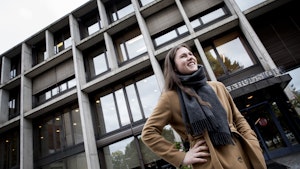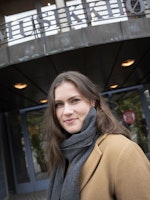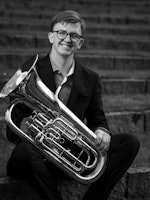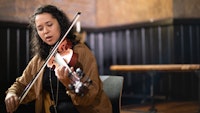“Things came to a sudden stop just when everything had begun to run smoothly. The Norwegian Academy of Music called and said they would pay for my ticket back to Norway, as it had become too risky to stay in Austria. So I just had to leave it all behind and go home to the snow and forests,” says Ragna Rian.
As early as Ragna’s first visit to Vienna at the age of 13, she knew that she would live there someday. There was something special about the city – something almost pulsating. The young violinist was entranced by the beautiful architecture, the classical music that seemed to radiate from every corner, and the pleasure of strolling through the same streets that all the great composers had once walked. The pride of the people living there now was palpable.
In the course of her first year of study at the Norwegian Academy of Music for a Bachelor’s degree in classical performance, Ragna felt increasingly rootless, unable to find a real direction in what she was doing. She began to think about Vienna again. She was longing for a place to put down roots. In her second year Ragna decided to apply to the University of Music and Performing Arts, Vienna (MDW) through the EU’s student exchange programme, Erasmus.
“The Academy gave me the help I needed to apply. So then I just left,” she says.
“But I had to learn German from scratch. I left for Vienna in September, and classes were going to begin in October. I had four weeks, and had been given financial support for a language course. It turned out fine. I was very motivated to learn German, also because language is a gateway to culture,” Ragna explains.






